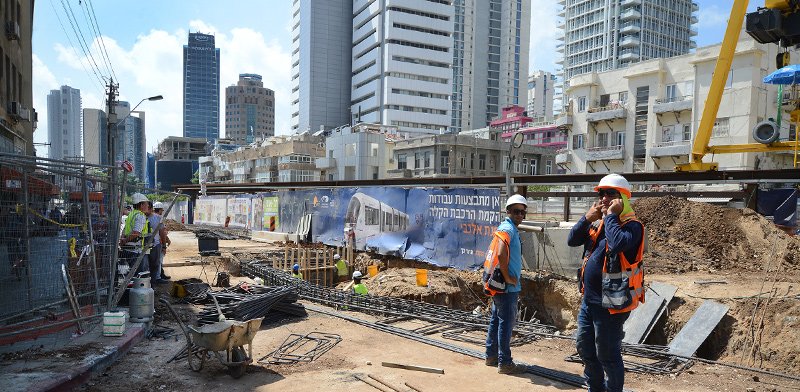New gov't to mull business model for Tel Aviv metro

The next government faces a decision about how to carry out the metro project, which will preoccupy residents of the greater Tel Aviv area throughout the next decade. One of the key questions to be decided soon will be whether to build the metro through a government company or in partnership with private franchise holders utilizing the public-private partnership (PPP) method.
This method in the infrastructure sector is like a marriage, and the question of which method to choose is equally elusive and difficult. It depends not only on the choice of the right partner for tying the knot, and not only on signing a good partnership agreement that will divide the risks correctly, but also on the state's ability to realize that in the PPP method, it is a partner, not the owner. Israel has already tried this marriage twice with two franchise holders on the two Red Lines in the Tel Aviv and Jerusalem light rails.
In Tel Aviv, matters fell apart immediately after the wedding. Following the global credit crisis and several other surprises, franchise holder MTS asked to state for concessions on a number of matters. Instead of thinking like a real partner and exercising trust, the state was convinced that MTS was simply cheating it, and sued for divorce. In Jerusalem, the couple gave birth to the light rail, but the marriage was ridden with conflict and counter-lawsuits in the billions of shekels. In the coming year, the state will buy the franchise holder's share, and the marriage will be dissolved long before the planned separation.
The light rail project in Tel Aviv was nationalized and given to NTA Metropolitan Mass Transit System. The completion date was postponed from 2018 until 2021 and the estimated budget ballooned from NIS 11 billion to NIS 17 billion, but the work is now progressing more or less as planned. Still, if you ask NTA CEO Yehuda Bar-On, who is resigning, he will tell you with no ifs, ands, or buts: in building light rails, two are better than one. Others, on the other hand, argue that the franchise method is unsuitable for constructing a complex railway system in a dense metropolis. A private franchise holder is incapable of dealing itself with all of the authorities, infrastructure, and bureaucracy. The only ones who profit from the matter are the lawyers.
All eyes are now on Jerusalem, where the state and the municipality are about to give operation of the existing line and construction of the next line (the Green Line) to a new Israeli-Spanish franchise holder. In Jerusalem, they are now promising that it will end up differently - that the lessons have been learned. The municipality and the state are setting up the infrastructure for the railway, and the franchise holder will only have to lay the tracks and the operating system. If the new divorcee comes up with a surprise in the next round, we may get an answer to our question.
Related News
